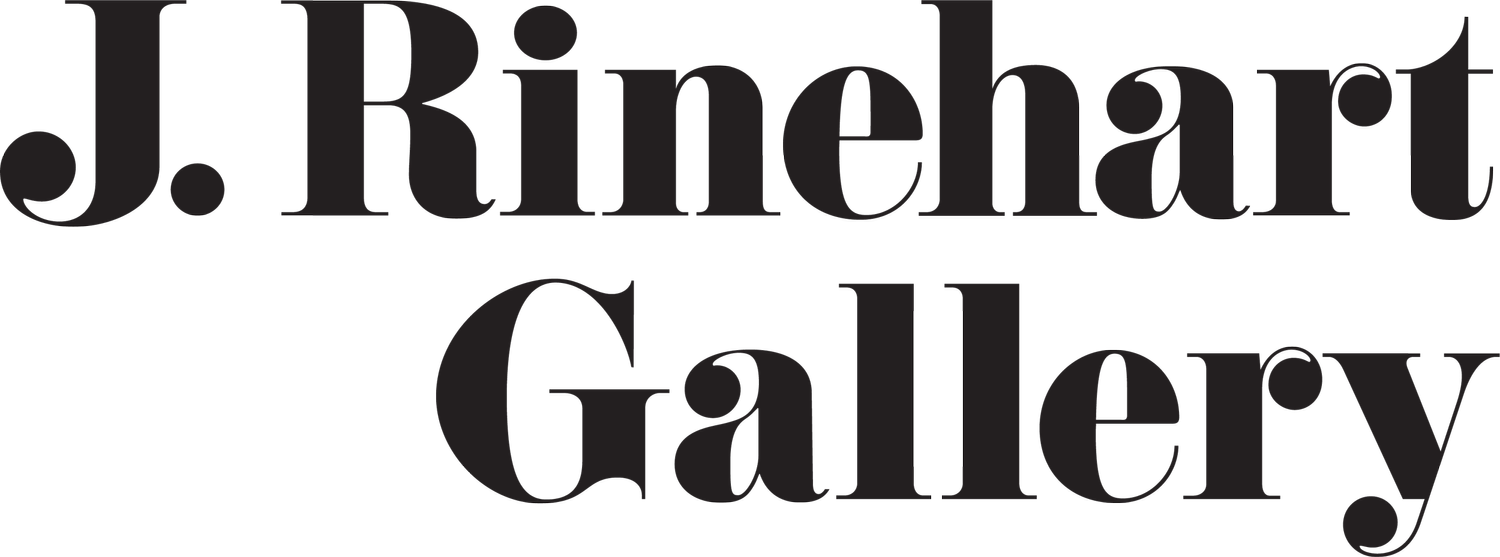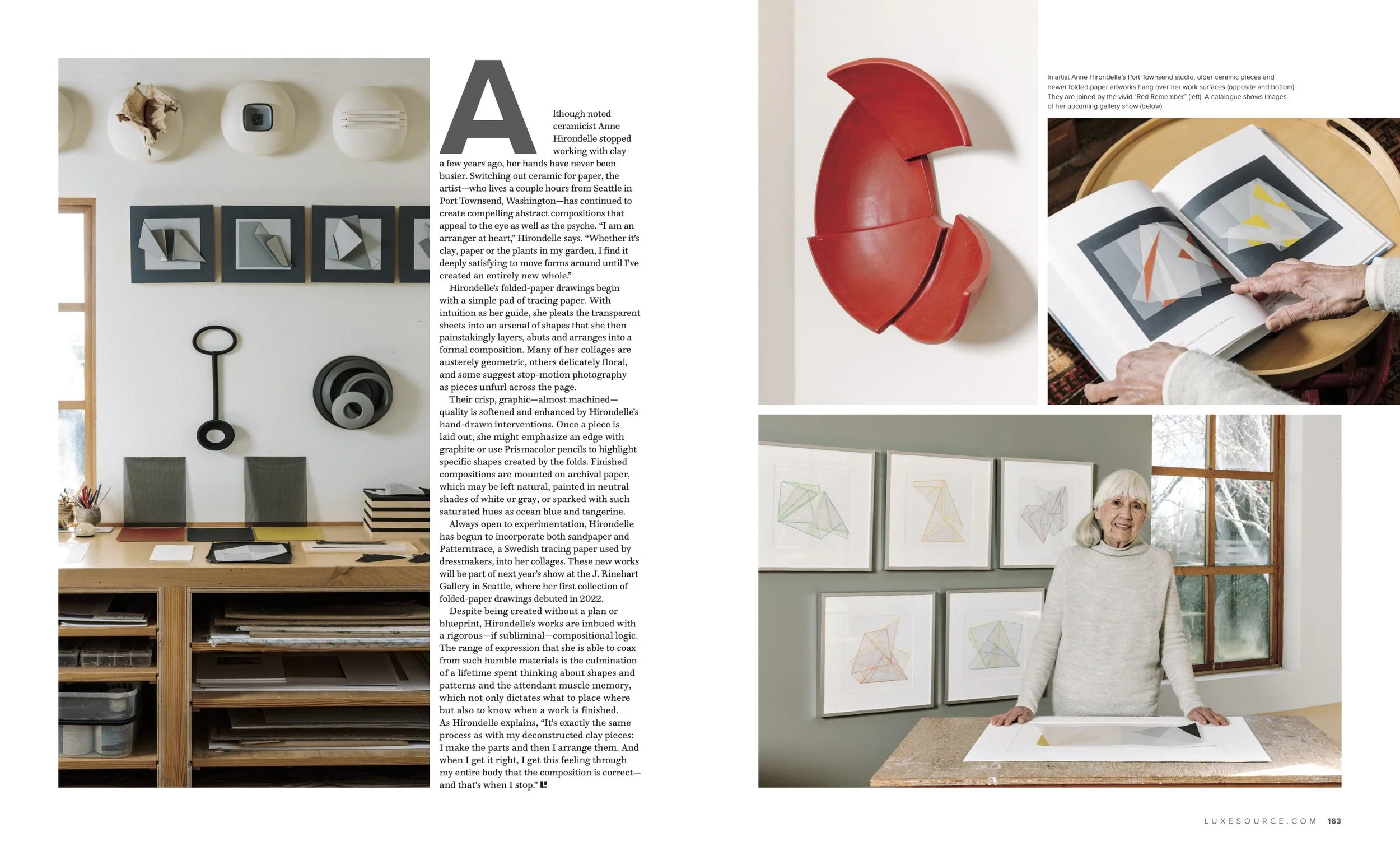LUXE INTERIORS + DESIGN
IN THE FOLD
“Artist Anne Hirondelle uses paper to create vivid abstract works”
written by Deborah Bishop | Photography by Brooke Fitts
“Although noted ceramicist Anne Hirondelle stopped working with clay a few years ago, her hands have never been busier. Switching out ceramic for paper, the artist—who lives a couple hours from Seattle in Port Townsend, Washington—has continued to create compelling abstract compositions that appeal to the eye as well as the psyche.
“I am an arranger at heart,” Hirondelle says. “Whether it’s clay, paper or the plants in my garden, I find it deeply satisfying to move forms around until I’ve created an entirely new whole.” Hirondelle’s folded-paper drawings begin with a simple pad of tracing paper. Within tuition as her guide, she pleats the transparent sheets into an arsenal of shapes that she then painstakingly layers, abuts and arranges into a formal composition. Many of her collages are austerely geometric, others delicately floral,and some suggest stop-motion photography as pieces unfurl across the page. Their crisp, graphic—almost machined—quality is softened and enhanced by Hirondelle’s hand-drawn interventions. Once a piece is laid out, she might emphasize an edge with graphite or use Prismacolor pencils to highlight specific shapes created by the folds. Finished compositions are mounted on archival paper, which may be left natural, painted in neutral shades of white or gray, or sparked with such saturated hues as ocean blue and tangerine. Always open to experimentation, Hirondelle has begun to incorporate both sandpaper and Pattern trace, a Swedish tracing paper used by dressmakers, into her collages. These new works will be part of next year’s show at the J. Rinehart Gallery in Seattle, where her first collection of folded-paper drawings debuted in 2022. Despite being created without a plan or blueprint, Hirondelle’s works are imbued with a rigorous—if subliminal—compositional logic.The range of expression that she is able to coax from such humble materials is the culmination of a lifetime spent thinking about shapes and patterns and the attendant muscle memory,which not only dictates what to place where but also to know when a work is finished.As Hirondelle explains, “It’s exactly the same process as with my deconstructed clay pieces:I make the parts and then I arrange them. And when I get it right, I get this feeling through my entire body that the composition is correct—and that’s when I stop.”



